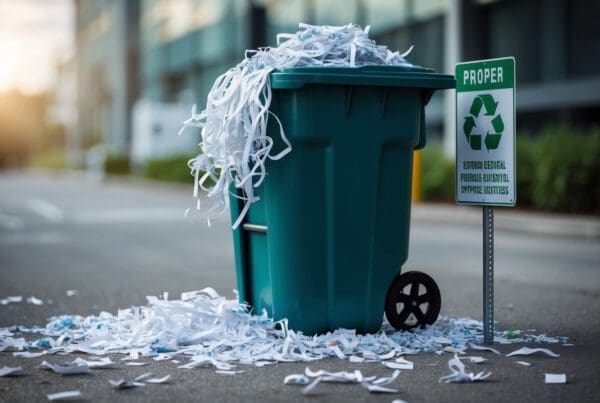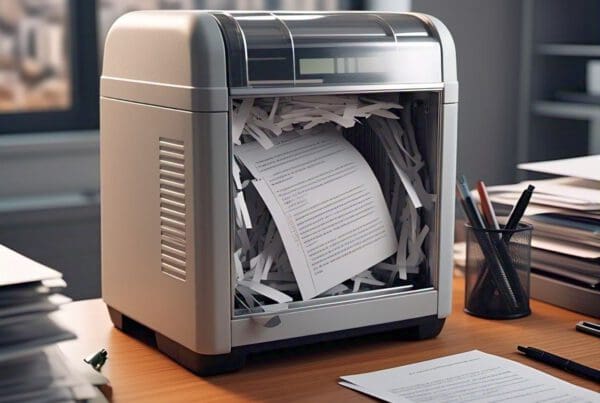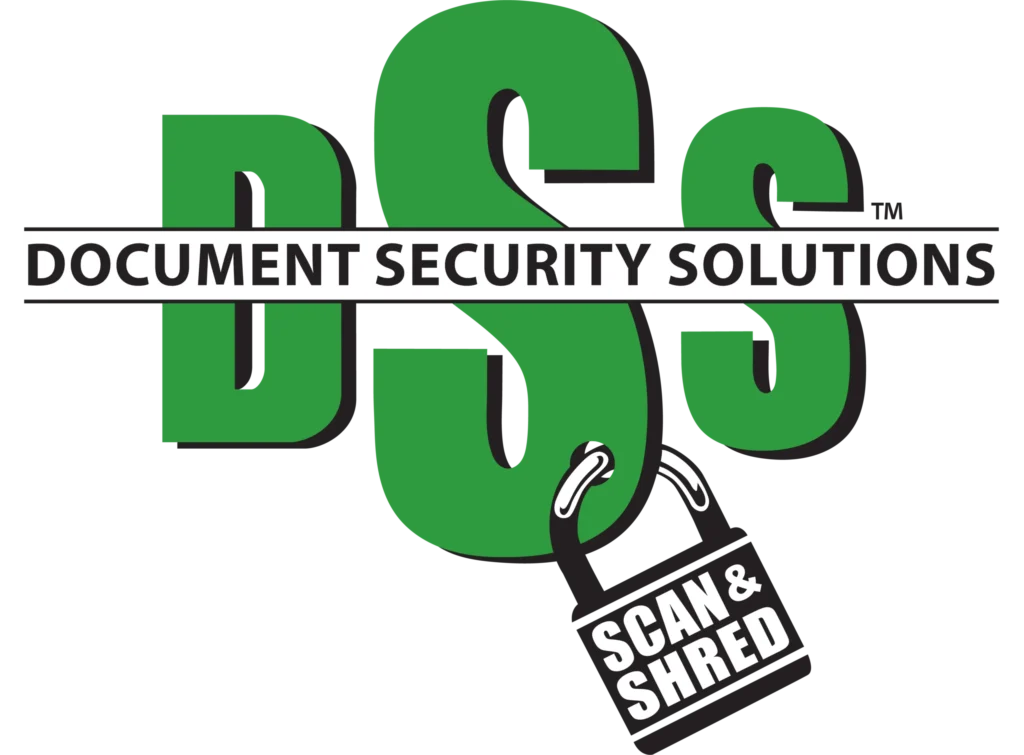Understanding Georgia’s Data Protection Landscape

In Georgia, data protection laws require businesses to secure personal information effectively. It’s essential to know how both state and federal regulations apply to managing and disposing of such data.
Georgia Law and Personal Information Security
In Georgia, protecting personal information is a priority. The Georgia Personal Identity Protection Act mandates businesses to safeguard personal data. It covers the security and disposal of records containing sensitive information such as names, social security numbers, and financial details.
When paper records are no longer needed, proper disposal methods like shredding are required. This ensures that none of this data can be retrieved or misused by unauthorized individuals. We need to ensure compliance with these regulations to avoid penalties and maintain customer trust.
Federal Laws Impacting Georgia Businesses
On the federal level, several laws impact how we handle personal information. The Fair and Accurate Credit Transactions Act (FACTA) requires the proper disposal of consumer information to prevent identity theft. This includes securely destroying paper documents with consumer data.
The Gramm-Leach-Bliley Act (GLBA) mandates financial institutions to explain how they protect customer information. Meanwhile, the Health Insurance Portability and Accountability Act (HIPAA) focuses on safeguarding medical records. Following these laws is crucial for businesses operating in Georgia.
We must stay informed and compliant with these federal requirements to ensure the security of personal data.
Legal Requirements for Document Shredding
Businesses need to be aware of important laws regarding document shredding to stay compliant. Key laws like FACTA, HIPAA, and the GLBA guide how sensitive and financial records should be properly disposed of to protect privacy.
FACTA and HIPAA Compliance
The Fair and Accurate Credit Transactions Act (FACTA) affects how businesses handle sensitive consumer information. We must ensure proper disposal of any documents containing consumer data by shredding them to prevent identity theft. FACTA requires all businesses to take reasonable measures when disposing of such records.
HIPAA affects how healthcare institutions handle patient records. Our commitment to compliance means we must shred paper records and use proper disposal methods for any document containing personal health information. This helps protect patient privacy and avoids potential fines. Ensuring compliance with these acts protects us and our clients.
GLBA and Shredding Financial Records
The Gramm-Leach-Bliley Act (GLBA) applies mainly to financial institutions. This law requires us to protect the privacy of consumer financial information. We must implement measures, like shredding, to ensure proper disposal of these sensitive records.
The GLBA mandates that financial records be disposed of in a way that prevents unauthorized access. Compliance with this law is crucial for maintaining consumer trust. Following these requirements helps us avoid penalties and secures the privacy of financial data.
Understanding these requirements is crucial for our business, ensuring both compliance and protection of client information.
Preventing Identity Theft with Secure Shredding
Secure shredding plays a crucial role in safeguarding sensitive information and preventing identity theft. It involves the use of specialized services to ensure that documents are destroyed properly, reducing the risk of data breaches and unauthorized access.
The Role of Shredding Services in Protecting Information
Shredding services help us protect sensitive information by completely destroying documents that are no longer needed. They use advanced shredders that cut paper into tiny, unreadable pieces. This makes it difficult for anyone to retrieve information from discarded documents.
Many shredding services offer a certificate of destruction. This certificate provides proof that documents were destroyed securely and is a key step in maintaining compliance with Georgia’s paper shredding laws. It also gives us peace of mind knowing that our confidential information is disposed of properly.
Mitigating Data Breaches with Document Destruction
Proper document destruction is vital for reducing the risk of data breaches. When we dispose of documents without secure shredding, sensitive information can fall into the wrong hands. This can lead to identity theft and financial loss.
By regularly using secure shredding methods, we greatly reduce the chances of sensitive information being accessed by unauthorized individuals. Shredding helps in maintaining privacy, especially for businesses that handle personal data belonging to clients and employees. Without effective document destruction, the potential for data breaches increases, threatening the security of personal and business information.
Industry-Specific Shredding Standards and Practices
Different industries must follow specific rules for shredding and disposing of sensitive information. Healthcare and consumer reporting sectors have unique standards to protect privacy and ensure legal compliance.
Healthcare Providers and HIPAA Laws
Healthcare providers must comply with HIPAA (Health Insurance Portability and Accountability Act) laws, which demand secure handling of patient data. Protected Health Information (PHI), such as medical records, billing, and lab results, must be shredded securely.
To meet these standards, we use professional shredding services that offer on-site and off-site options. It is important to obtain a Certificate of Destruction for records, ensuring proof of compliance.
Regular employee training and clear shredding policies help maintain high standards of privacy protection. Adhering to these practices reduces the risk of data breaches.
Consumer Report Information Handling
Handling consumer report information involves strict practices to prevent misuse. Businesses should follow the Fair Credit Reporting Act (FCRA) guidelines which require secure destruction of credit reports and related documentation.
We recommend using trustworthy shredding services to guarantee the data is destroyed completely. Regular audits and logbooks can track what reports are shredded and when.
Implementing secure destruction methods, like cross-cut shredding, can further ensure sensitive consumer information is irretrievable. This protects us from legal liabilities and maintains customer trust.
By prioritizing security and compliance, businesses can confidently handle and dispose of consumer report information.





